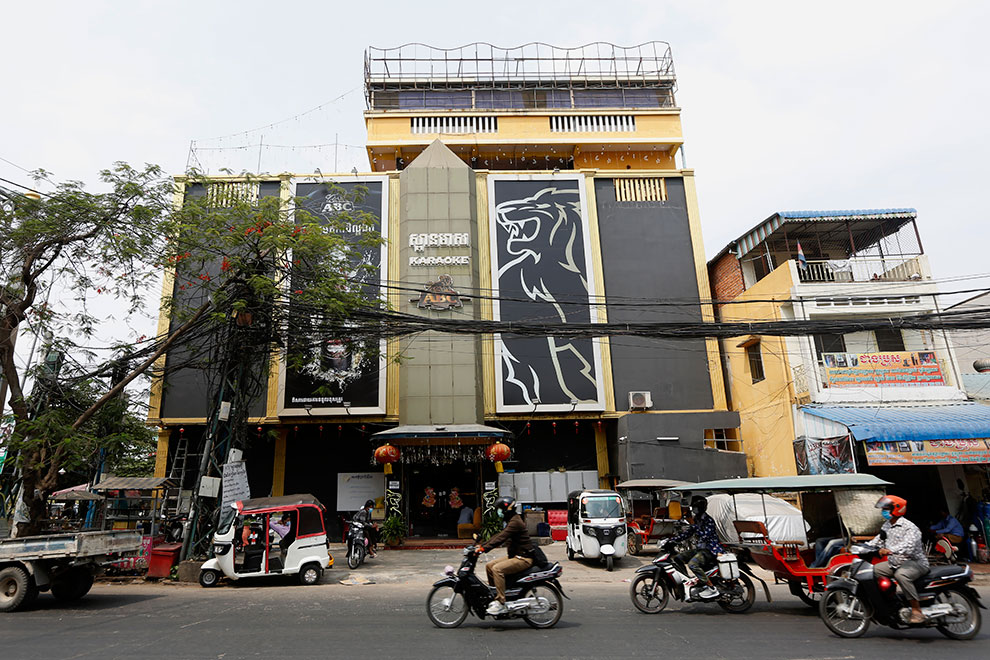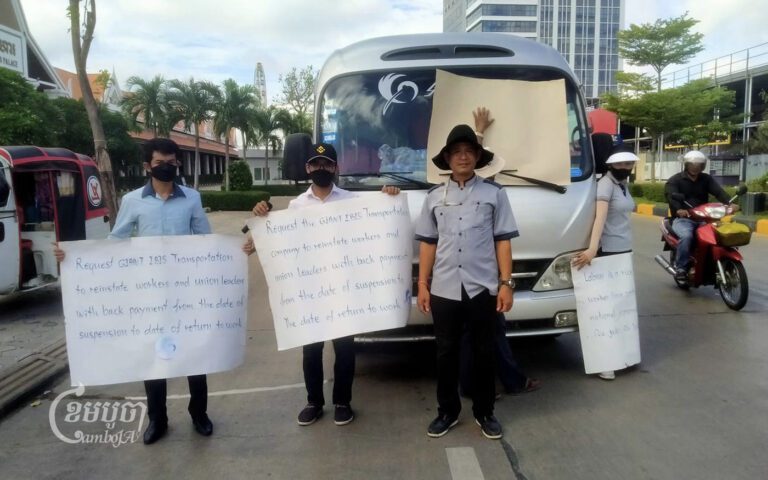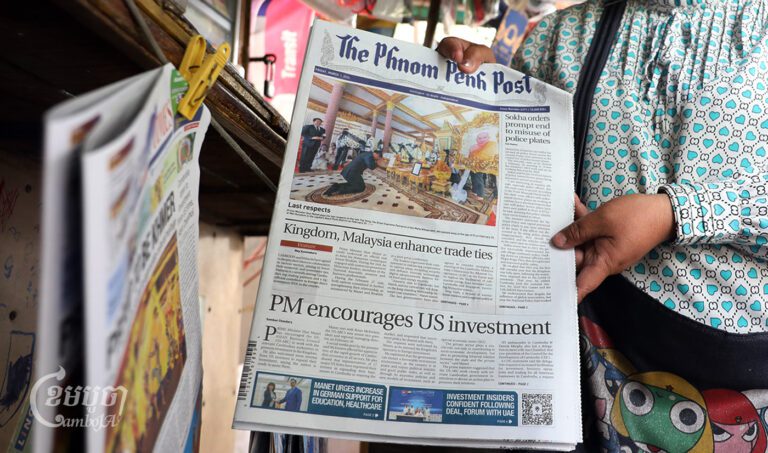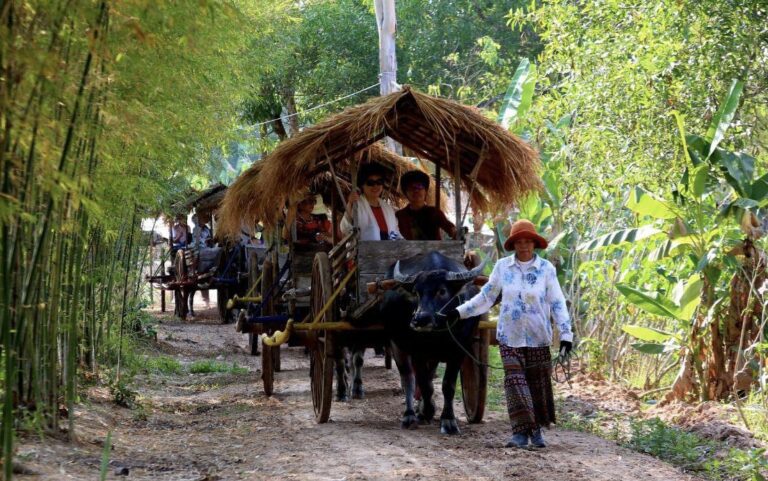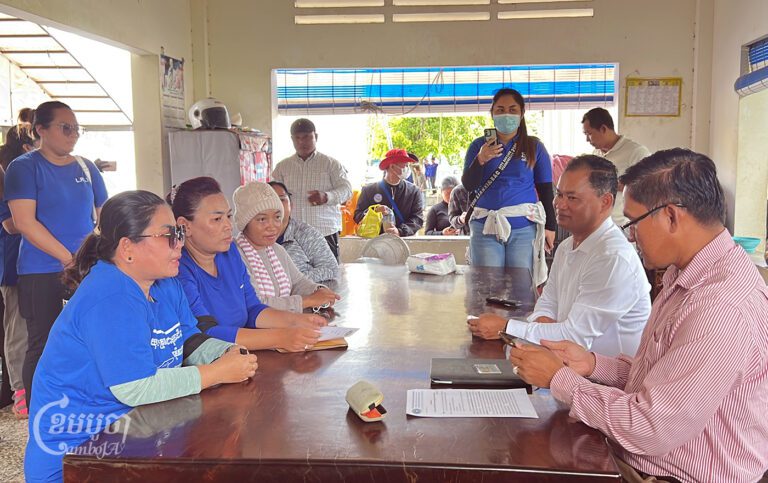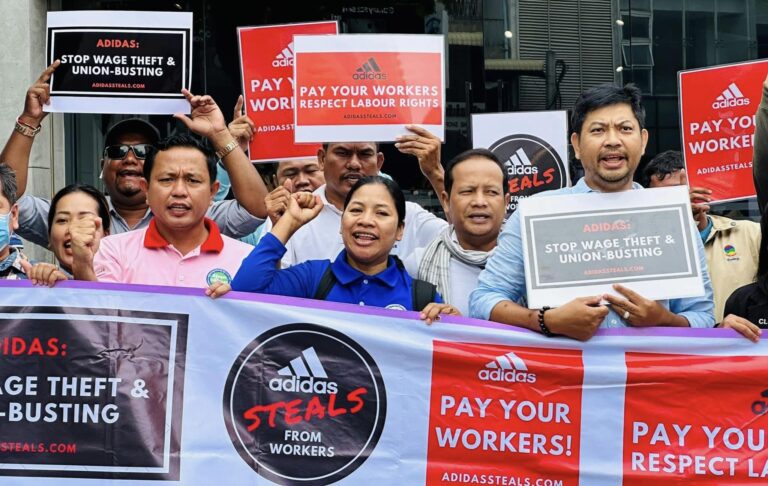The government has ordered the closure of all karaoke clubs and cinemas in the country amid a further surge in coronavirus cases, sparking fears of jobs losses among workers in the entertainment sector.
Though supportive of government actions to try to stem the spread of the virus, the workers and a union said they expected to face immediate financial difficulties, including problems repaying debt.
Earlier this month — before the recent rise in coronavirus cases in the country — the Asian Development Bank already projected employment losses in Cambodia of 48,000 to 250,000 in large part due to a slowdown in Chinese tourism.
In a statement on Tuesday, Health Minister Mam Bunheng ordered the closure of all karaoke clubs and cinemas across the country, following the earlier closure of schools and universities.
Sok Vanna, the Tourism Ministry’s entertainment and sport tourism department director, said there were 1,293 KTVs, clubs and beer gardens across the country.
“Among of them, the government decided to close only KTVs and clubs because the government understands that these places can spread Covid-19,” Vanna said, referring to the coronavirus.
Asked about support for workers at the facilities, Vanna said a response was still being worked on. “The government is considering a solution to this problem,” he said.
The move came as the total number of coronavirus cases in the country rose to 35, spread across several provinces, according to the Health Ministry:
| No. | City/Province | Total case | Recoverd | Deaths |
| 1 | Phnom Penh | 9 | 0 | 0 |
| 2 | Battambang | 4 | 0 | 0 |
| 3 | Kep | 4 | 0 | 0 |
| 4 | Kampong Cham | 3 | 0 | 0 |
| 5 | Kampong Chhnang | 3 | 0 | 0 |
| 6 | Siem Reap | 2 | 0 | 0 |
| 7 | Preah Vihear | 2 | 0 | 0 |
| 8 | Banteay Meanchey | 2 | 0 | 0 |
| 9 | Kampot | 2 | 0 | 0 |
| 10 | Tbong Khmum | 2 | 0 | 0 |
| 11 | Preah Sihanouk | 1 | 1 | 0 |
| 12 | Koh Kong | 1 | 0 | 0 |
| Total | 35 | 1 | 0 |
The 35 cases are made up of 22 Cambodians, five Malaysians, three British, two French, one Chinese, one Canadian and one Belgian, the Health Ministry said.
Ministry spokeswoman Or Vandine noted in a press conference at the Council of Ministers on Wednesday morning that in all but one case the patients had contracted the virus overseas before traveling to Cambodia.
All patients were in quarantine at hospitals, and the conversion of Phnom Penh’s shuttered Grand Duke Hotel into a treatment center would add capacity to care for 100 patients, she said.
The outbreak is expected to cause widespread financial hardships, with the Asian Development Bank forecasting between 48,000 and 250,000 lost jobs in an assessment published March 6.
In its best-case scenario of Chinese tourism dropping by 50 percent for two months, Cambodia’s economy was expected to shrink by $283 million, causing an employment loss of 48,000.
Moderate and worse-case scenarios predicted employment losses of 69,000 and 131,000, respectively, with a “hypothetical worst case” — of Chinese tourism falling by 50 percent for six months and tourism from outside Asia to Southeast Asia decreasing by a further 40 percent — projected to lead to an employment loss of 250,000 in Cambodia.
In Phnom Penh, a 26-year-old KTV worker, who declined to give her full name because of the stigma attached to nightlife workers, said she was thousands of dollars in debt due to previous medical expenses for her parents, and feared losing her work.
“I get tips of $10 to $20 every night from guests, and I spend this money on my daily living,” she said. “My salary is only just over $100” a month.
“If I lose my work, my family and I will face difficulties,” she added.
A female bartender in Phnom Penh, who also declined to give her full name, said staff members were unsure and concerned about whether the ban applied to bars.
“The other staff members at this bar and I have been talking with one another about the closure announcement,” the 25-year-old said. “If they close my workplace, I don’t know how can I afford my daily living and pay for my debt, because I borrowed $1,000 from microfinance to buy a motorbike.”
In Siem Reap, a KTV owner, who did not give his full name, said he had already closed down his establishment because there were no customers.
He had 63 staff members, most of whom had returned to their home provinces because they did not have enough money to pay for their rented rooms in Siem Reap city, he said.
“It severely impacts the staff because now they don’t have the money to support their families,” he said. “We regret the situation, but we cannot solve it except by closing.”
Ou Tepphallin, president of Cambodian Food and Service Workers’ Federation, said she welcomed the government’s measures to prevent the spread of coronavirus, but there needed to be compensation for the workers who lost their livelihoods.
“We want the government provide some package for their eating and rent,” Tepphallin said. “We want the government take measures like with garment workers.”
The union also called for support for medical expenses and delays in debt repayments.
However, Meas Nee, a political analyst, said the entertainment sector was not as organized as the garment sector, and it would be difficult for its workers to receive governmental support.
“The state will find it difficult to help them because the sector is an informal system — they are not officially contracted like the garment workers,” Nee said. He added that he expected that the economic impact of coronavirus would serious and widespread both globally and in Cambodia.


